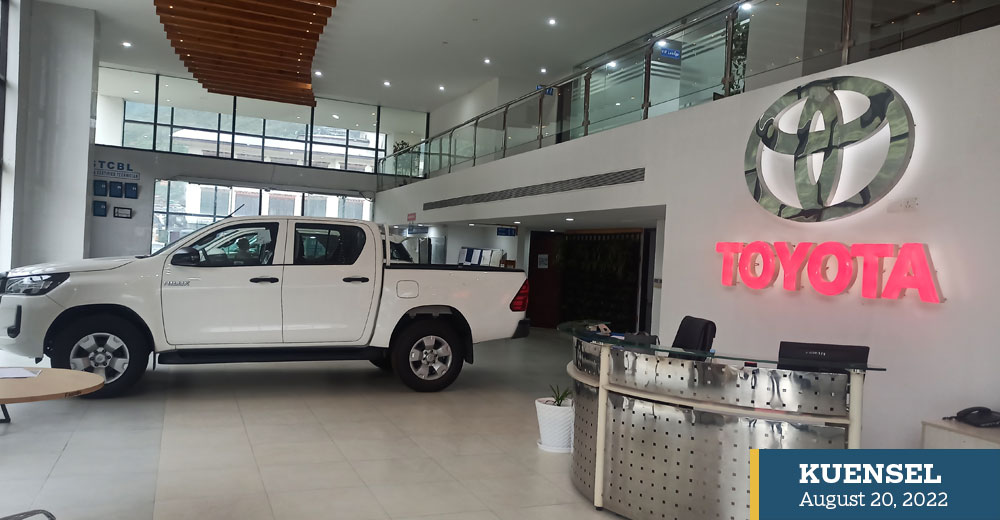Thukten Zangpo
With the moratorium on the import of select vehicles by the government, vehicle dealers will feel the brunt.
However, some vehicle dealers are looking to diversify their businesses.
To save the depleting foreign currency reserve, the finance ministry notified on August 18 to suspend the import of vehicles including two wheelers, except utility vehicles costing less than Nu 1.5 million (M), heavy earth-moving machines and agriculture machineries, and vehicles to be used in the tourism sector.
Taxis, both fossil-fuel driven and electric that are due for replacement are also exempted from the moratorium.
A vehicle dealer said that the suspension on the import of vehicles comes after the government allowed only import of BS-VI model vehicles from January 1 as emission standards. “It would heavily affect the vehicle dealers in the country.”
“Vehicle sales have dropped since January this year,” he said, adding that the government had not taken dealer’s consideration to defer implementation of BS-VI model.
A dealer said that BS-VI model vehicles now cost Nu 200,000 more than the earlier BS-IV models.
He added that although the government has allowed the import of utility vehicles, he said that the utility segment market in the country is saturated. “We cannot solely depend on utility vehicles.”
The farmers and wholesale dealers mostly prefer utility segments.
If the suspension is not lifted, a dealer said that it would be difficult to retain the employees.
Senior general manager of the Bhutan Hyundai Motors, Pema Lodey, said that the company has placed orders for about 300 vehicles that are due to arrive between October and November. The invoices are yet to be received.
“If the moratorium continues, we will face a difficult time and have to lay-off some staff,” Pema Lodey said. Currently, Bhutan Hyundai Motors has about 40 employees.
Every month, the company sells about 60 units of vehicles.
Pema Lodey said that the company used to have a fairly good stock of vehicles before the pandemic. However, the demand in India has gone high currently and the company receives half of their order from the motor company.
Similarly, the chief executive officer of State Trading Corporation of Bhutan Limited (STCBL), Tshering Wangchuk, said that the company would be impacted negatively with the suspension of vehicles.
“We were expecting this and were preparing for the last 4 months,” he said, adding that the company has charted out the way forward for diversification of business.
“The company has been depending mostly on the vehicle business except few other businesses,” Tshering Wangchuk said. “We take this opportunity to diversify and improve the existing business.”
Eighty-five percent of the company’s profits are made from the vehicle business.
The company also deals in spare parts, home appliances, bitumen, lubricants, ICT equipment and boulder export to Bangladesh.
As a cost cutting measure, the company, he said, will stop donations, corporate social responsibility, contributions, rationalise the catering during meetings and travel, cut credit systems. The company has 202 employees.
If the moratorium is for six months, Tshering Wangchuk said that the company would be able to sail through easily.
He added that the company has 133 Toyota vehicle bookings (13 in stock and 120 are expected to reach) until January next year; 31 Eicher in stock and 10 expected, 55 Tata cars in stock and 60 expected, and 9 SML vehicles in stock.
STCBL sold 158 vehicles worth Nu 371M imported from India and 65 Toyota vehicles worth Nu 248M in the first six months of this year.
In 2021, the company sold 352 vehicles worth Nu 1.21 billion from India and 180 Toyota vehicles worth Nu 740M.


